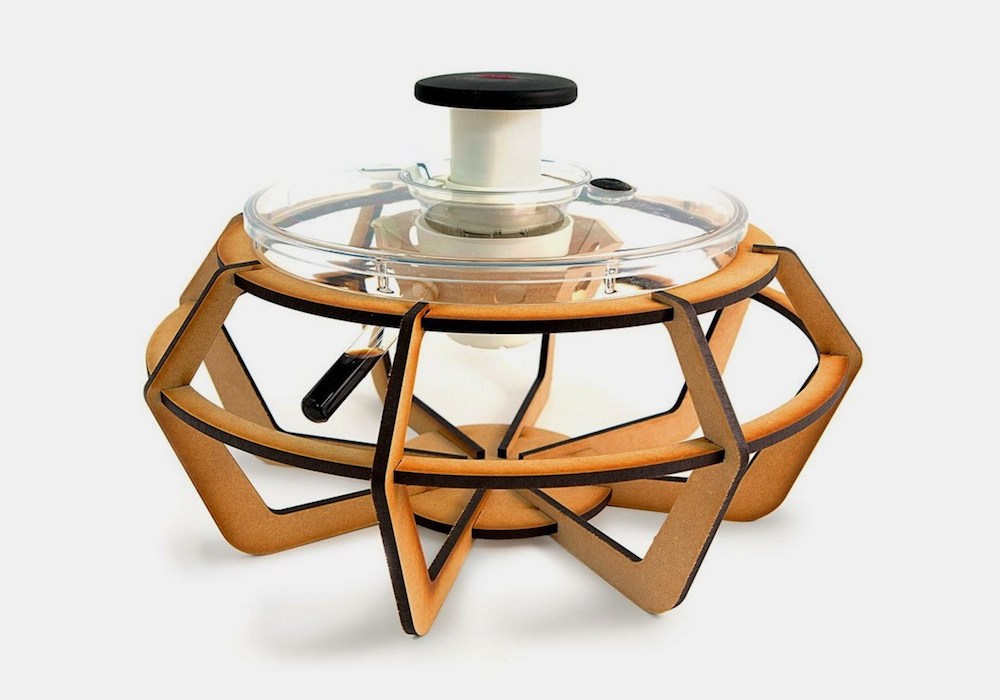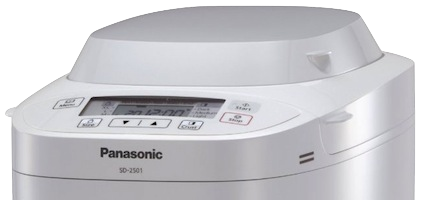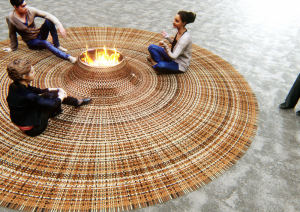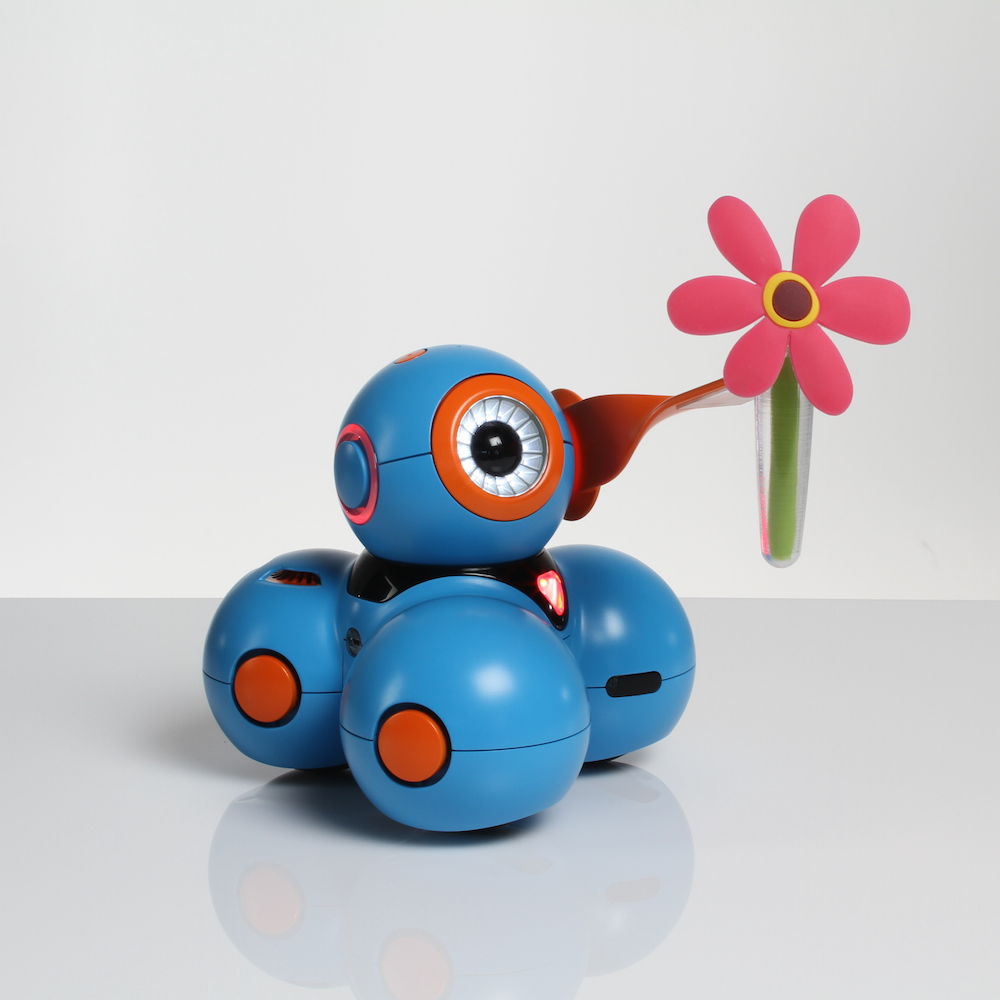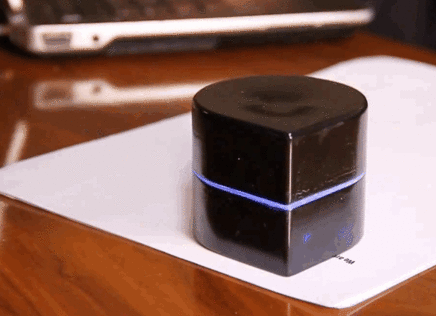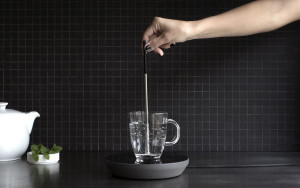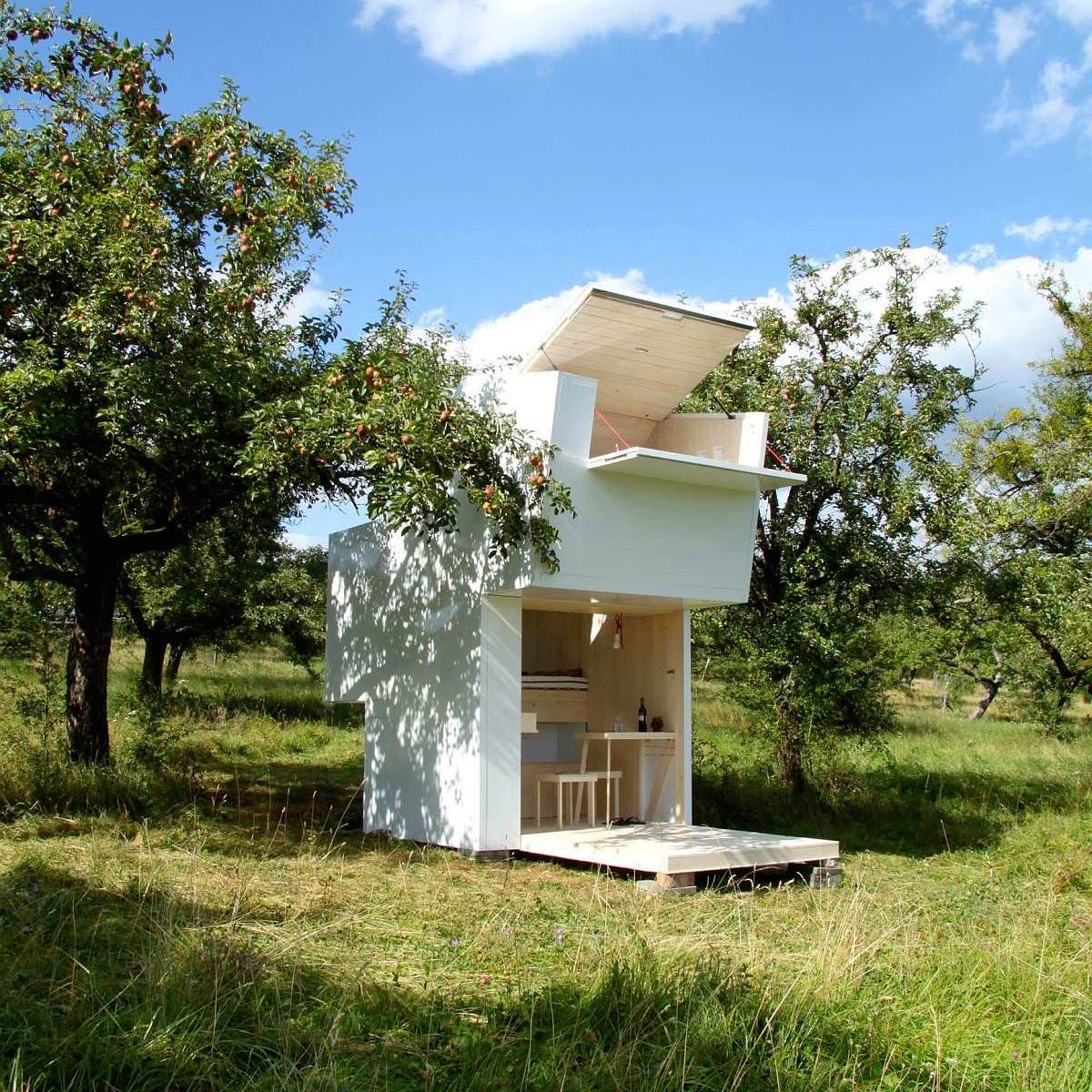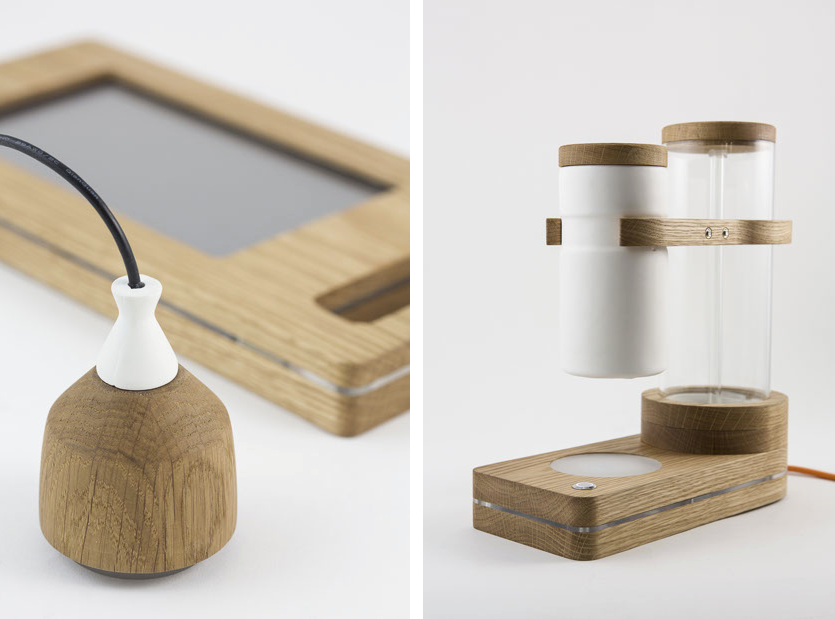
Alex Duffner developed this range of Domestic Science Machines to serve as both kitchen appliances and playful scientific experiment equipment. He was inspired after seeing how excited grown-ups got at the Science Museum for the experiments that were primarily intended for the children and decided to try and inject an element of fun and scientific experimentation into our kitchens.
While many of us can’t really justify forking out on expensive scientific equipment to satisfy our own inner-child’s wonder, it might be easier to rationalise and explain to your adult-self if these devices also functioned as regular kitchen appliances, you know, what grown-ups use.
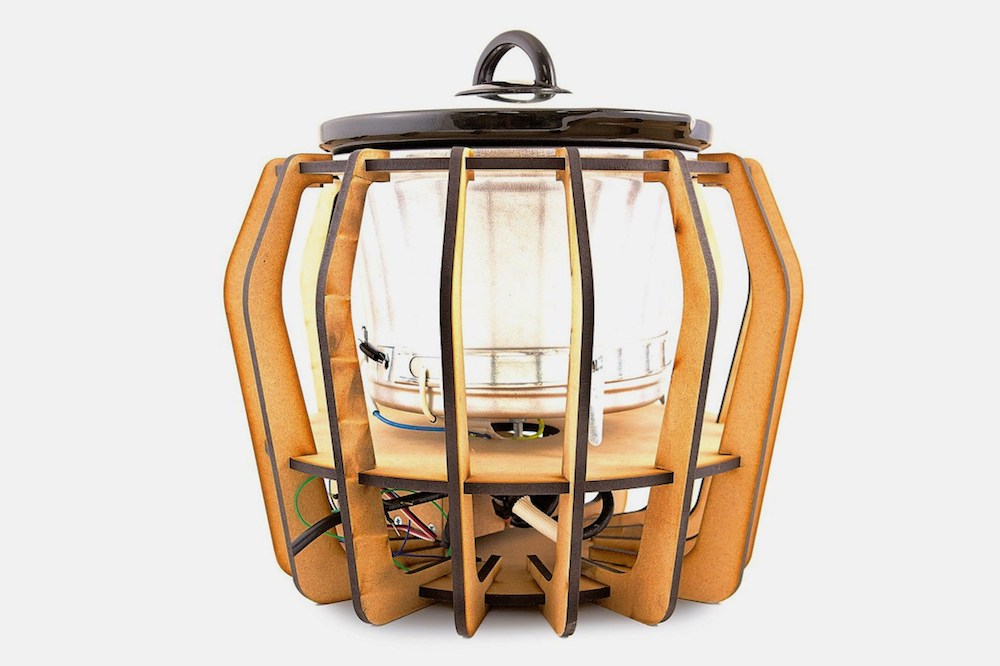
Alex began by hacking regular kitchen appliances in his prototypes which he saw already had the same core functionality and potential to serve as scientific equipment. He recalled seeing in the past a microwave oven being used in a laboratory for sterilisation purposes and upon hearing how a device at the DLS (Diamond Light Source) synchrotron built up pressure in a similar was to a coffee machine, decided to make it a reality.
“The physicists at the Large Hadron Collider and synchrotron created simple analogies, often related to the kitchen, when explaining complex scientific concepts.”

Most of us don’t already use laboratory centrifuges in our kitchen (except perhaps Heston Blumenthal) but a salad spinner works by the same principle. A cylinder is spun which creates a higher velocity and stronger centripetal at the outside edges and this is what seperates the water from the salad leaves. By replacing the casing typically used to hold the salad with a series of test tubes, a laboratory centrifuge is born.
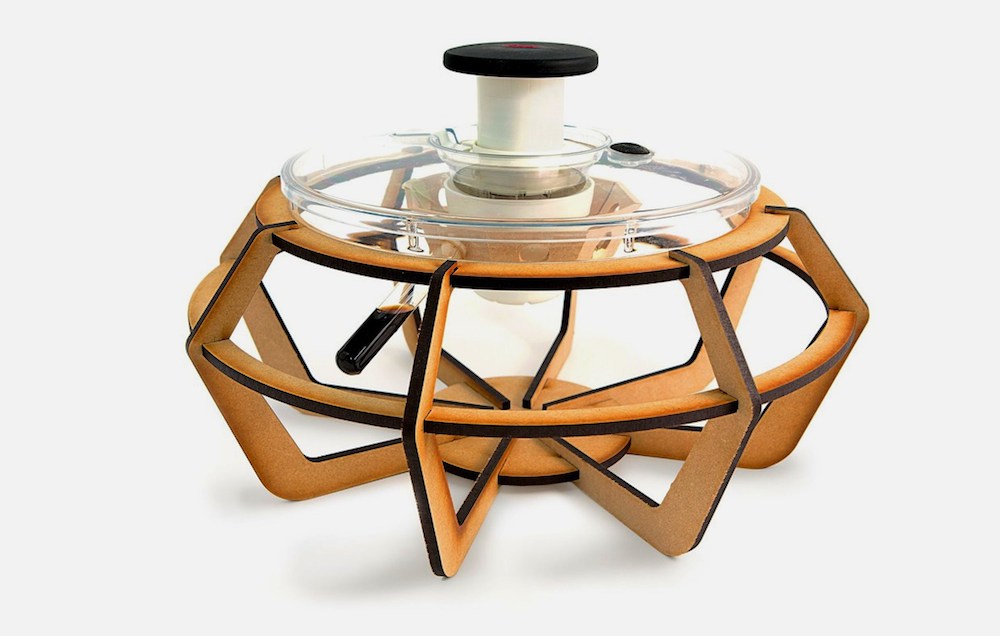
I wouldn’t usually consider using one of these in my cooking but given the opportunity I can think of plenty of possibilities opened up by having a centrifuge in the kitchen. A sauce such as ketchup could be separated and its constituents used individually, fat or other unwanted elements of a sauce could be stripped out, or some pretty neat looking desserts could be made.
“The use of wood and ceramics instead of plastic and metal are a contrast to the look of scientific instruments, that are often cold and uninviting.”

I think the most useful device in the Domestic Science Machines range would have to be the microscope. With this portable device we aren’t restricted to only observing something in the same location and at the same angle as is the case with a traditional microscope. We can take the ‘eye’ of the device with us and point it behind cupboards, down pipes or in other awkward to reach places. A mother might use it to have a look at something stuck in her child’s eye or when removing a splinter. The digital camera also adds a new dimension allowing us to capture our observations and use it to create art; a time lapse progression of a wound healing for example.
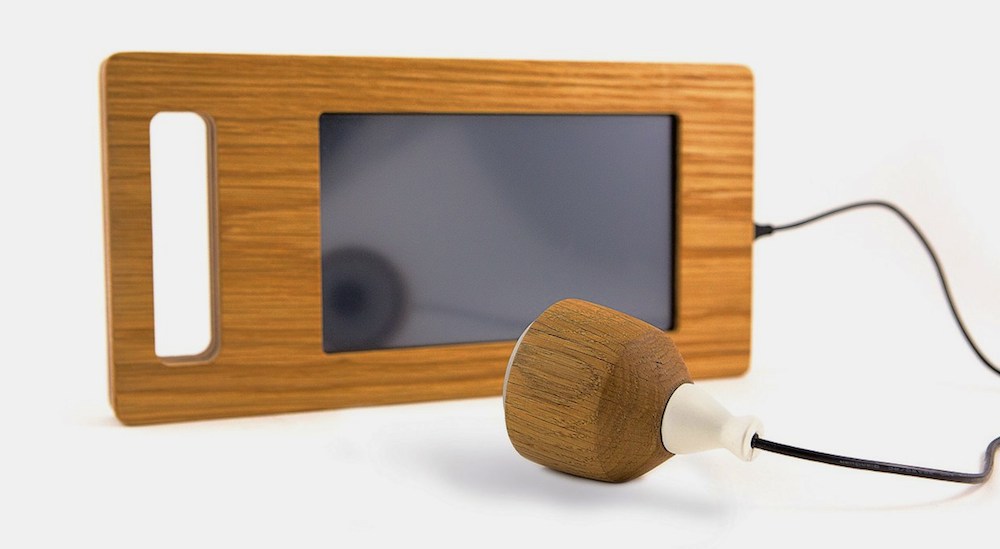
The coffee machine / spectrometer is perhaps the least useful, but by no means the least beautiful of the devices. A spectrometer basically seperates the colours found in light allowing scientists to deduce which elements are present by observing which wavelengths of light are present or missing.

I can’t really think of a practical use for the spectrometer around my home but the colours revealed have always fascinated me, and that’s ultimately what the scientific side behind these devices is about: fun, wonder and fascination. Alex Duffner encourages us to look in a different way at the things around us in our home that we think we’re already familiar with.
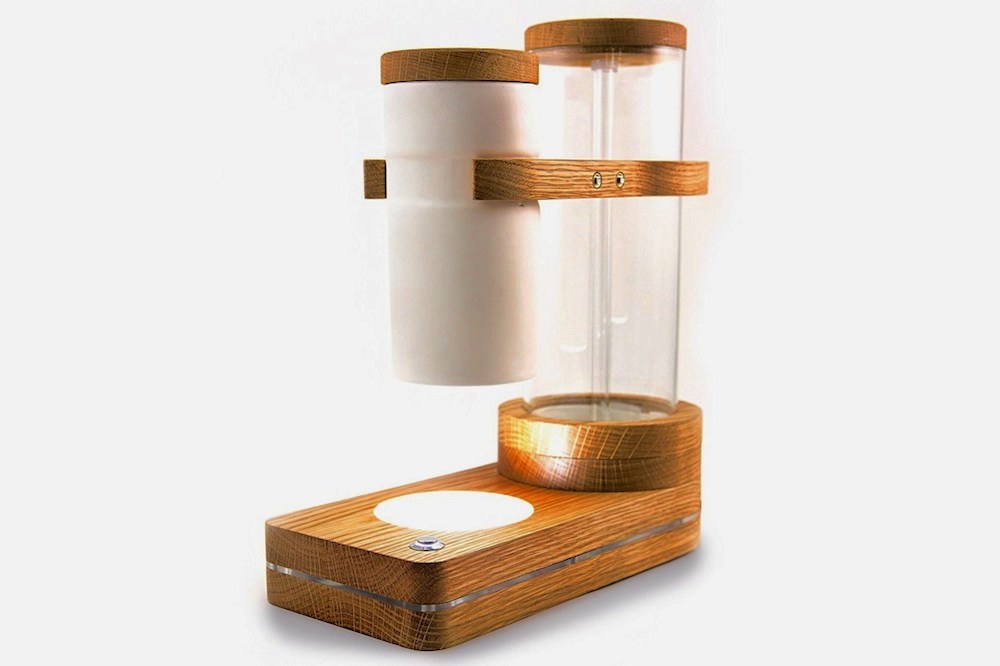
You can read more about the Domestic Science Machines in this article on the Goldsmiths Design Blog where Alex Duffner studied BA Design.
Share this Post

